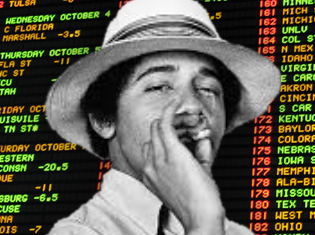 The United States Senate Judiciary Committee held a hearing on Tuesday to grill Department of Justice (DOJ) officials about their recent decision not to interfere with states that have legalized the sale and recreational use of marijuana. In the November 2012 elections, voters in both Colorado and Washington approved plans to end the prohibition on marijuana, and last month the DOJ announced it didn’t intend to bring the hammer down, provided neither state violated certain ‘red lines,’ such as enabling use by minors or if neighboring states experienced a dramatic upsurge in marijuana coming across their borders.
The United States Senate Judiciary Committee held a hearing on Tuesday to grill Department of Justice (DOJ) officials about their recent decision not to interfere with states that have legalized the sale and recreational use of marijuana. In the November 2012 elections, voters in both Colorado and Washington approved plans to end the prohibition on marijuana, and last month the DOJ announced it didn’t intend to bring the hammer down, provided neither state violated certain ‘red lines,’ such as enabling use by minors or if neighboring states experienced a dramatic upsurge in marijuana coming across their borders.
As this site has noted, the DOJ’s decision to let these states decide for themselves that marijuana is a relatively benign activity that they are fully capable of policing themselves contrasts sharply with the DOJ’s full-throated antagonism toward states that attempt to legalize single-game sports betting. New Jersey has passed such legislation and the Third Circuit Court of Appeals is currently mulling the state’s bid to overturn the federal PASPA prohibition against sports betting everywhere except Nevada.
The arguments against allowing widespread sports betting have generally focused on the potential for match fixing and the like but, as has been demonstrated time and time again, it is the bookies themselves who have been at the forefront of detecting betting irregularities and alerting the relevant authorities. As such, keeping the vast majority of betting underground defeats the stated purpose of preserving the hallowed ‘integrity’ of sports.
NO BONG BANKING
Most of the recent online gambling prosecutions in the US have focused on gambling operators’ use of the US banking system. Echoes of many an illegal gambling crackdown rang out loud and true on Tuesday as senators questioned how the states would monitor marijuana retailers’ transactions when federal law prohibits such businesses from obtaining bank loans, credit cards and even opening bank accounts. As Jack Finlaw, legal counsel to Colorado Gov. John Hickenlooper, told the Committee: “Businesses forced to operate as cash-only businesses because they are denied access to the banking system are a magnet for crime and criminal activity.”
The DOJ’s August statement on marijuana retailers made no mention of banking laws. Former US Treasury Department official and current law professor at the University of Notre Dame Jimmy Gurule told Reuters that banks could be subject to charges of money laundering if funds generated by marijuana businesses crossed state lines. Indeed, banks have previously been threatened with prosecution if they dealt with medical marijuana dispensaries in states like California.
Officials have said privately that the DOJ doesn’t intend to prosecute banks that deal with state-licensed marijuana businesses, but banks are unlikely to accept the risk in the absence of written legislation. There are a couple pieces of legislation floating about Congress that would allow banks to legally deal with these businesses, but neither is expected to pass anytime soon (much like federal bills proposing an end to the prohibition on sports betting). As for how dispensaries were supposed to operate within existing tax laws, Deputy Attorney General James Cole passed the buck by suggesting that was a riddle for Congress to solve.
SCANT RESOURCES SQUANDERED
Committee chairman Sen. Patrick Leahy (D-VT) gave an interview to the Atlantic last week in which he noted that federal law enforcement officials “only have so many resources and … to waste time on marijuana in states where it is legal makes absolutely no sense.” Leahy said he hoped the DOJ would acknowledge that such affairs “should be a state matter, that we have more important things to do.”
John Urquhart, the sherriff of King County, Washington, whose 37-year law enforcement career includes 12 years as a narcotics detective, testified at Tuesday’s hearing that the war on drugs had “not significantly reduced demand over time.” Urquhart said he was a “strong supporter” of his state’s marijuana laws, in part because “that’s what the people want. We – the government – have failed the people and now they want to try something else.”
As Urquhart put it: “Too often the attitude of the police is ‘We’re the cops and you’re not. Don’t tell us how to do our job.’ That is the wrong attitude and I refuse to fall into that trap.” Urquhart believes legalizing and regulating marijuana sales is “a better alternative” than the status quo, “but the only way we’ll know is if we are allowed to try.”
The parallels with the ongoing prosecutions of illegal sports betting operations across the US are undeniable. Prohibition has clearly done little to reduce demand and voters in states like New Jersey have overwhelmingly backed their political representatives in passing legislation allowing sports wagers within the state’s borders. Simply put, the fact that citizens in 49 US states are required to break the law to wager on sports while this alleged soul-destroying activity is freely available in Nevada makes one wonder just what the feds have been smoking.
